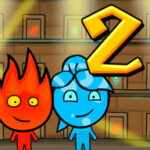League of Legends – The Titan of Competitive Multiplayer Online Battle Arena (MOBA)
Introduction
League of Legends (LoL), developed by Riot Games, is a multiplayer online battle arena (MOBA) game that has defined and dominated the competitive gaming scene since its release in 2009. With a massive global player base and a thriving esports ecosystem, League of Legends combines fast-paced gameplay, strategic depth, and constant evolution, making it a staple in the gaming community worldwide.
1. Development and Launch
League of Legends was developed by Riot Games, founded by industry veterans passionate about creating a fair and engaging competitive game. Released in October 2009, it quickly gained popularity due to its free-to-play model and engaging gameplay.
Early Growth and Updates
Continuous updates, balancing changes, and new content kept players invested, helping LoL build a loyal fanbase and become a cultural phenomenon.
2. Core Gameplay and Objectives
At its core, LoL is a 5v5 competitive game where two teams battle to destroy the opposing team’s Nexus—the heart of their base. Matches involve tactical map control, resource management, and team coordination.
Map and Lanes
The primary map, Summoner’s Rift, features three lanes (top, mid, bot), a jungle area, and objectives such as turrets, dragons, and Baron Nashor, which provide strategic advantages.
3. Champions and Roles
Players select from over 160 unique champions, each with distinct abilities, playstyles, and roles: Tank, Fighter, Mage, Assassin, Marksman, and Support. Mastery of champions and team composition is vital for success.
4. Progression and Ranking System
During matches, champions level up, gain gold, and purchase items to strengthen their abilities. The game features a ranked ladder system from Iron to Challenger, allowing players to compete at various skill levels.
5. Visuals and Audio
LoL features colorful, stylized graphics optimized for clarity during chaotic team fights. The sound design includes unique voice lines, spell effects, and thematic music enhancing the immersive experience.
6. Esports and Competitive Scene
League of Legends boasts one of the largest esports ecosystems, with global tournaments like the World Championship drawing millions of viewers. Professional teams and players inspire millions with high-level play.
7. Community and Social Features
The game supports in-game chat, friend lists, and clubs, fostering social interaction. Riot Games actively moderates behavior and promotes sportsmanship, though toxicity remains a community challenge.
8. Monetization and Accessibility
LoL is free to play with optional purchases for skins, champions, and cosmetics. This model keeps the game accessible while allowing players to personalize their experience.
9. Pros and Cons
Pros
-
Deep strategic gameplay and champion variety
-
Strong competitive and esports infrastructure
-
Constant updates and balance adjustments
-
Free-to-play accessibility with optional cosmetics
-
Active community and social engagement
Cons
-
Steep learning curve for new players
-
Toxicity and negative player behavior can impact experience
-
Matches can be lengthy, requiring significant time commitment
-
Some champions or items may feel overpowered at times
10. Overall Rating and Conclusion
Ratings Breakdown
-
Gameplay & Strategy: 9.5 / 10
-
Visuals & Audio: 8.5 / 10
-
Community & Social Features: 7.5 / 10
-
Esports & Competitive Scene: 10 / 10
-
Monetization & Accessibility: 9 / 10
Conclusion
League of Legends remains a defining title in the MOBA genre, offering a rich, competitive experience that balances accessibility and depth. Its massive champion roster, strategic gameplay, and world-class esports presence ensure it will continue to captivate players for years to come. Whether you’re a casual gamer or aspiring pro, League of Legends offers endless opportunities for excitement and growth.





























